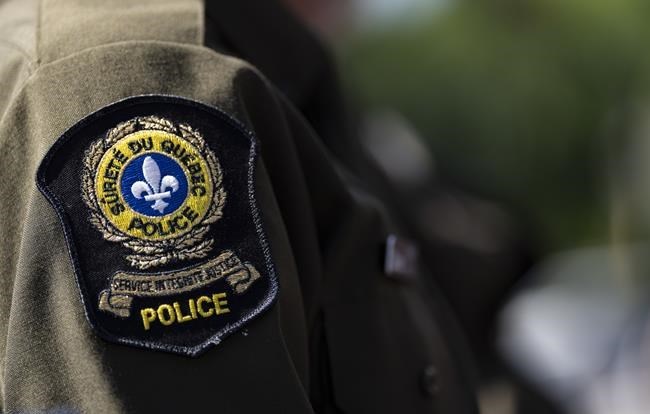MONTREAL — Three men in their 30s died after an apparent avalanche Tuesday during a snowmobiling expedition on Quebec's Gaspé Peninsula.
The coroner's office confirmed Wednesday that 35-year-old Joël Crête, 30-year-old Nicolas Vanasse and 33-year-old Bryan Forgues Morissette were killed. They were from the towns of Coaticook and St-Denis-de-Brompton, both in the Estrie region east of Montreal.
Quebec provincial police said a fourth member of the snowmobiling group called emergency services at around 5:30 p.m. to report the disappearance of his three companions in the Chic-Chocs nature reserve.
Guy Bernatchez, a representative of the Haute-Gaspésie regional county municipality, said the incident has shaken a region where outdoor winter sports and backcountry snowmobiling are a way of life for many.
“It’s an extraordinary tragedy for us because it isn’t something that happens often," he said in a phone interview.
Many local volunteers joined police and firefighters to search for the missing men, whom Bernatchez described as fathers with young children.
Police dispatched a team of rescuers trained in avalanche response on Tuesday to locate the men on Mount Médaille; they were assisted by firefighters and ambulance services.
The three missing men were found later in the evening and declared dead in hospital, police spokesperson Sgt. Frédéric Deshaies said. An investigation is underway to determine the exact causes and circumstances of their deaths, he added.
Dominic Boucher, general manger of Avalanche Quebec, a non-profit that works to prevent injuries and deaths from avalanches, said the avalanche happened on a section of public land that is popular with backcountry skiers and snowmobilers. He said the organization is still investigating what happened, but it's likely that the victims triggered the avalanche themselves, as is the case 80 per cent of the time.
In an interview, he compared the snowpack to a mille feuille — a layered, puff pastry dessert — with both weak and strong layers stacked on top of each other.
"Sometimes a weak layer has to support the more resistant layers on top, and sometimes it just takes an addition of weight, a load that can be a snowfall, a temperature warming, rain or the passage of a person" to trigger an avalanche, he said Wednesday.
While avalanches are more often associated with mountain chains larger than the summits found in Quebec, some 80 people have died from them in the province since 1825 — including most recently a backcountry skier in the Gaspé region in 2020, Boucher said. Six skiers were also injured — one seriously — in an avalanche on Mont-Albert in the Gaspé region in 2019.
Boucher said the area where Tuesday's avalanche occurred is risky for the same reason it's popular with backcountry enthusiasts: it lacks vegetation.
"If there are no trees, there are no anchors for the snow," he said. "And if there's no anchor for the snow, well there are favourable avalanche conditions if we find ourselves on a steep enough slope."
He urged backcountry enthusiasts to take a safety course offered by various avalanche associations, to carry rescue equipment and to check weather conditions and avalanche reports.
The deadliest avalanche in the province's history occurred in northern Quebec on Jan. 1, 1999, when nine people died and 25 were injured when an avalanche burst through the wall of a school in Kangiqsualujjuaq, where people had gathered to mark the new year.
While not related to an avalanche, there have also been previous snowmobile tragedies in Quebec, including in 2020 when six men, including five French tourists, died after several of their snowmobiles plunged into icy waters while they were riding off-trail in Quebec's Lac-St-Jean region.
This report by The Canadian Press was first published March 27, 2024.
Morgan Lowrie, The Canadian Press

